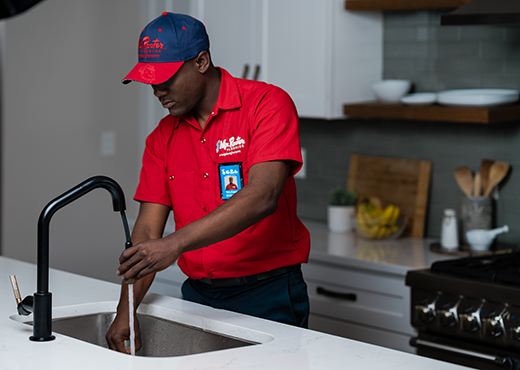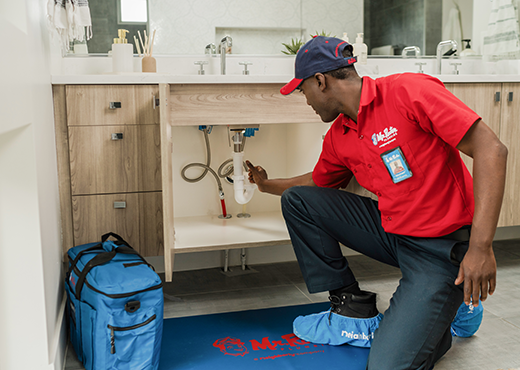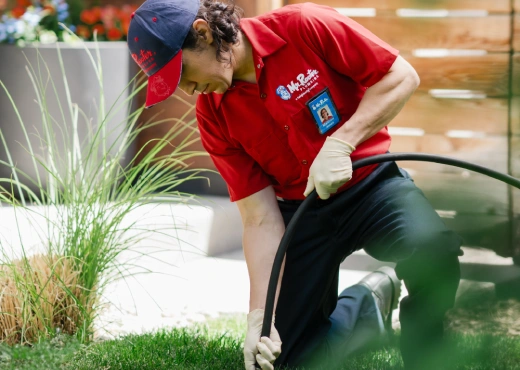Like many other appliances in your home, your disposal needs preventive maintenance to keep it in tip-top shape and avoid premature breakdowns. A garbage disposal's life span can vary depending on many factors, such as your usage, the disposal quality and the items you put down the disposal. Follow these maintenance tips to get the longest and most efficient life from your disposal.
- Avoid damaging items: Though putting all your food waste down the drain may seem convenient, remember there are limits to what your disposal can handle. Items like eggshells, celery, artichokes, orange peels, coffee grounds, potato peels, bones and fat can cause clogs or dull your blades. Additionally, non-food items like paper scraps or glass can contribute to clogs and lead to leaks or other issues.
- Regularly run it: One of the best ways to keep your disposal in tip-top shape is to run it frequently. Using your appliance at least once daily can prevent the blades from rusting. Even if you do not need to dispose of any food waste, you can run the disposal with ice cubes and baking soda to clean it and keep it in the best working condition.
- Use cold water: Running cold water can help transport the food waste through your pipes. Water flow can force food particles down the drain, preventing clogs from building. Do not use hot water, as warm temperatures could cause fat to melt and stick to your blades, reducing their effectiveness. Continue running cold water down the disposal for about 10 to 15 seconds after feeding waste into it.
- Monitor quantity and size: Your garbage disposal can only handle small amounts of food waste at a time. Dispose of large chunks by cutting them into smaller pieces, then putting them down the drain one at a time and allowing the disposal to clear the waste.
- Clean it often: Even though your disposal is out of your sight, it should not be out of mind. Cleaning your garbage disposal once or twice a month can go a long way to prevent clogs and kill bacteria that can bring unpleasant odors into your kitchen. Simple concoctions such as ice cubes and rock salt can serve as natural abrasives for cleaning food debris, and baking soda and vinegar is an excellent mixture for killing bacteria and eliminating smells. For the most efficient cleaning, use an old toothbrush to clean the inside of the disposal and the blades.
- Clear clogs: Clearing clogs from your disposal is not difficult if you catch them early. This strategy is one of the easiest ways to fix your disposal, prevent costly repairs and keep your kitchen tidy and efficient.






